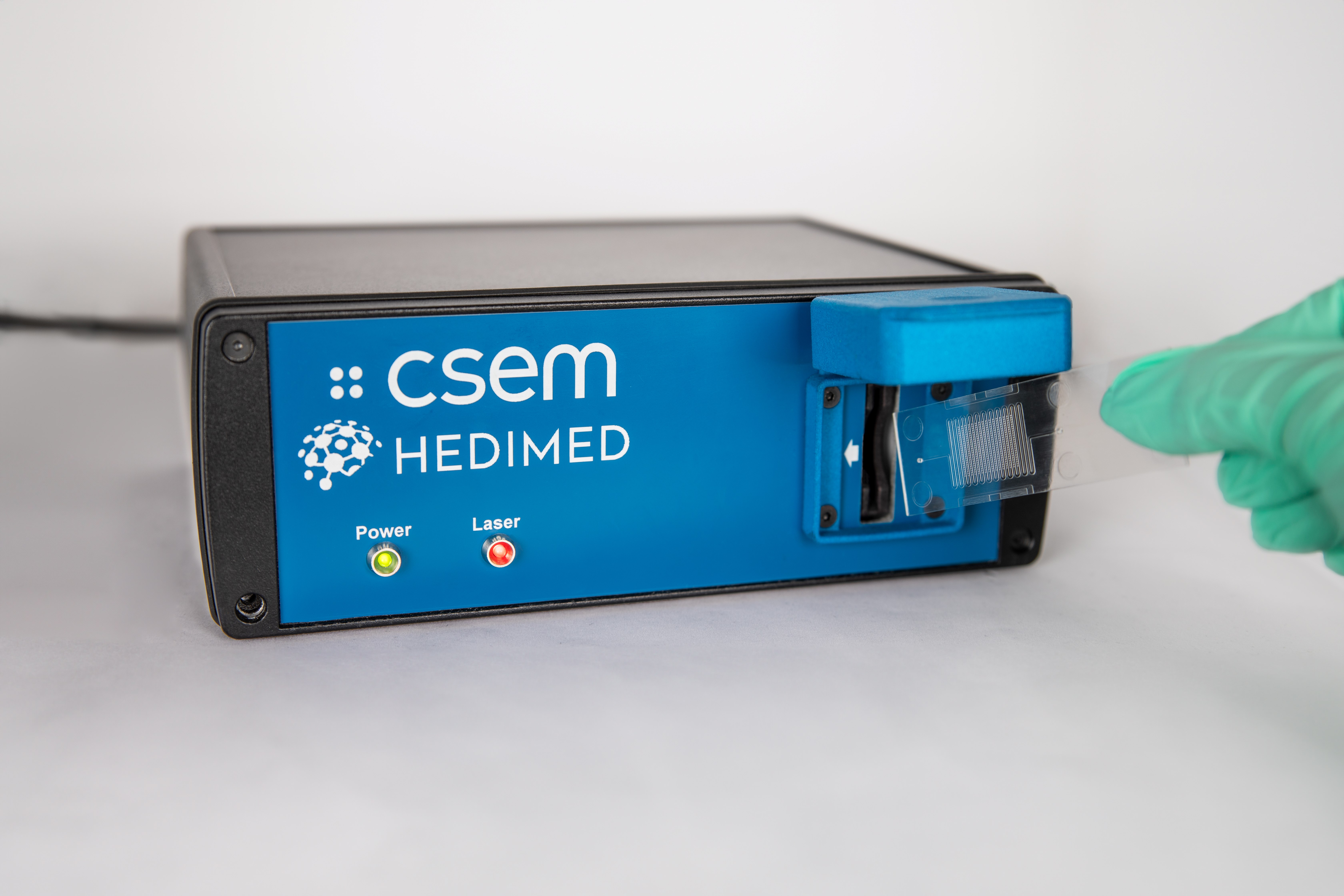Blog
Faecal volatilomics in exposome research
Novel Technologies used in HEDIMED Volatile organic compounds (VOCs) are substances that readily evaporate in our ordinary living environment. This means that they have a…
Adapting efficient multiplexing technologies: Array-in-Well and Mesoscale
Novel Technologies used in HEDIMED One of the main aims of the HEDIMED project is to investigate what is behind the epidemic of immune-related diseases,…
CSEM’s cutting-edge portable solution for allergy testing
Novel technologies used in Hedimed Amidst the rising tide of allergies and sensitivities, such as reactions to specific foods and pollen, CSEM stands as a…
Novel technologies used in hedimed
In HEDIMED, we are developing and using new technologies to advance research and science. Over time, we will introduce these technologies in depth in dedicated…
The eaten exposome: findings in type 1 diabetes
The increasing incidence of type 1 diabetes has caused concern in the Western world during recent decades. Type 1 diabetes is an immune-mediated disease and…
More friend than foe? Linking food microbiome and human health
Humans are constantly exposed to different food-associated bacteria depending on the types of products they consume. Even though some bacteria may be pathogenic, recent research…
Satellite data and health research
Research on environmental health is increasingly using satellite data. In addition to studying environmental and climatic changes on Earth, satellite observations have recently been used…
What’s behind the ‘epidemic of immune-mediated diseases’?
Many infectious diseases have dramatically decreased during the last 100 years in developed countries. Meanwhile, epidemiologic statistics indicate an increasing incidence in allergic disorders, like…
Why do we need birth cohorts?
Introduction Health is greatly determined by the exposome, i.e., environmental exposures one is subjected to throughout their lifetime. With the revolution in genetic techniques in…









